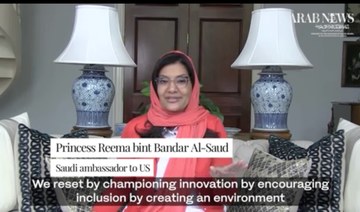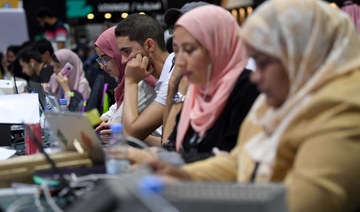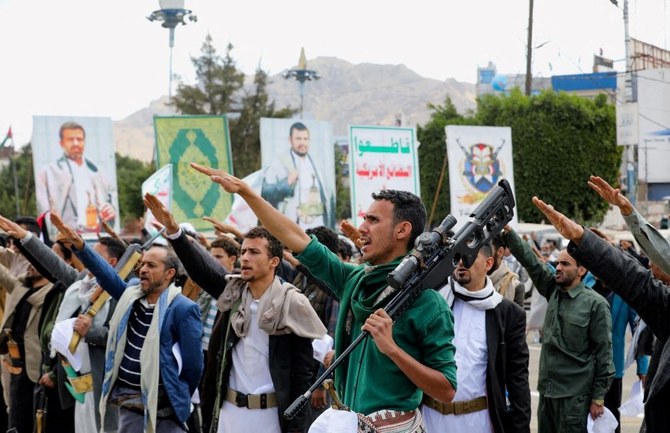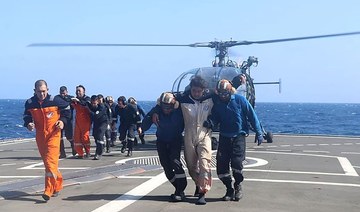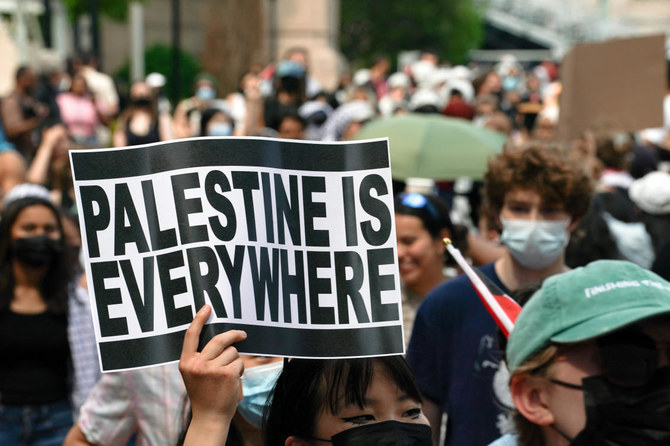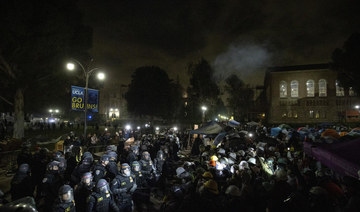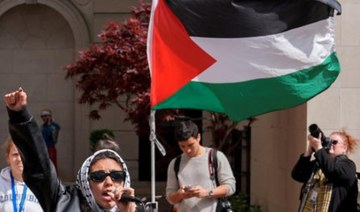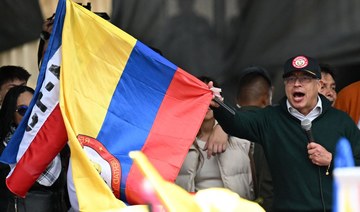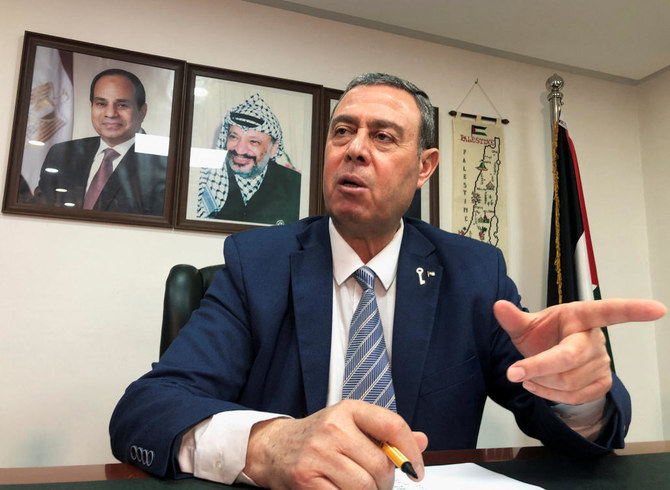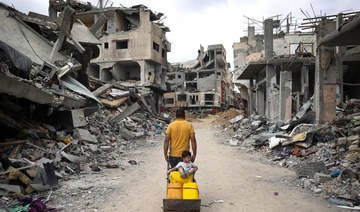DUBAI: Arab women breaking traditional barriers, online dating scams, the economic toll of fake news and the potential of women in the Middle East and North Africa were among the many issues debated at the Arab Women Forum in Dubai on Tuesday.
Launched in Saudi Arabia in 2018, the AWF is a platform to enhance and support the ever-growing contribution of Arab women in the region’s economy and society.
The forum hosts wide-ranging conversations to explore regional and global business dynamics with a strong focus on women’s empowerment.
AWF & TOP CEO CONFERENCE AGENDA
Special Address: Beyond the Business Reset.
Keynote: When Women Fight Back.
Storytellers From The War Front.
A New Beginning: work 2.0.
Arab Women’s Image.
It’s Fake News.
The Management Bottlenecks.
The Leaking Pipeline.
The Workplace Of Tomorrow.
Women In Tech.
Saudi Women Pioneers: Change From Within.
This year’s event, hosted at the Palazzo Versace hotel at the Jaddaf Waterfront, featured speakers from a range of professions and industries and experiences, and kicked off with a special address by Princess Reema bint Bandar, Saudi Arabia’s ambassador to the US, delivered by video from Washington, D.C.
Princess Reema, who is also a female entrepreneur, shared her thoughts on the post-pandemic business scenarios and Saudi Arabia’s plan for economic diversification, environment sustainability and gender diversity under Vision 2030, the reform strategy introduced by Crown Prince Mohammed bin Salman in 2016.
In a special address titled “Beyond the business reset,” she underscored the importance of not just opening doors for women to enter the workplace, but welcoming them in. “We have millions of talented, motivated women eager to contribute, and they are the key to social, cultural and economic progress in the Kingdom and, frankly, in the Arab world and around the world,” she said.
Saudi Arabia has done a “great reset” by transforming itself, and is entering the “restart” phase after successfully handling the impact of the COVID-19 pandemic, she said. “In post-pandemic, there is less reset and more restart,” Princess Reema said.
From embracing technologies, reducing carbon emissions and protecting the environment, to empowering and advancing women in different fields, Saudi Arabia is opening the door wide for a brighter future being built by both men and women, she said.
“I have not seen the change; I lived it. I know how important it is to open the workplace for women. When the doors for women were about to open, I realized that opening the doors wasn’t enough; women had to be prepared to take advantage of those open doors. We have to equip them with skills,” she said.
Speaking to Arab News, Nora Al-Dabal, arts and creative planning executive director at the Royal Commission of AlUla, said Saudi women have always played a role in the development of Saudi Arabia, “but the (2030) Vision has unlocked the full potential of, and opened bigger opportunities” for women.

Nora Al Dabal, executive director of Arts and Creative Industries at the Royal Commission for AlUla. (AN photo)
In the past four years, there has been a 130 percent increase in female participation in the labor force, particularly in the private sector, Al-Dabal said.
“Today, women constitute 30 percent of the private-sector labor force. In the past two years, there has been an increase of 60 percent in the number of businesses owned by women,” she added.
Princess Reema’s speech reflected the seriousness of the Saudi leadership in transforming the Kingdom, diversifying its economy and utilizing the potential of all its citizens, said Deepali Janin, an Indian businesswoman who attended the event.
Janin, the founding director of Meraki, a family-owned diamond business that began in India some seven decades ago, entered Dubai in 2011 and now is looking at the Saudi market.
“I feel the Saudi leadership is dedicated and serious about its planning and thinking. I think it is going to be a long journey, meaning more strength, more confidence and more influence.”
Story tellers from the war front
Some believe women journalists are successful because of their attention to detail. But for Arizh Mukhammed, a war correspondent, it is a woman’s heart and emotions that make her coverage of conflicts distinctive.
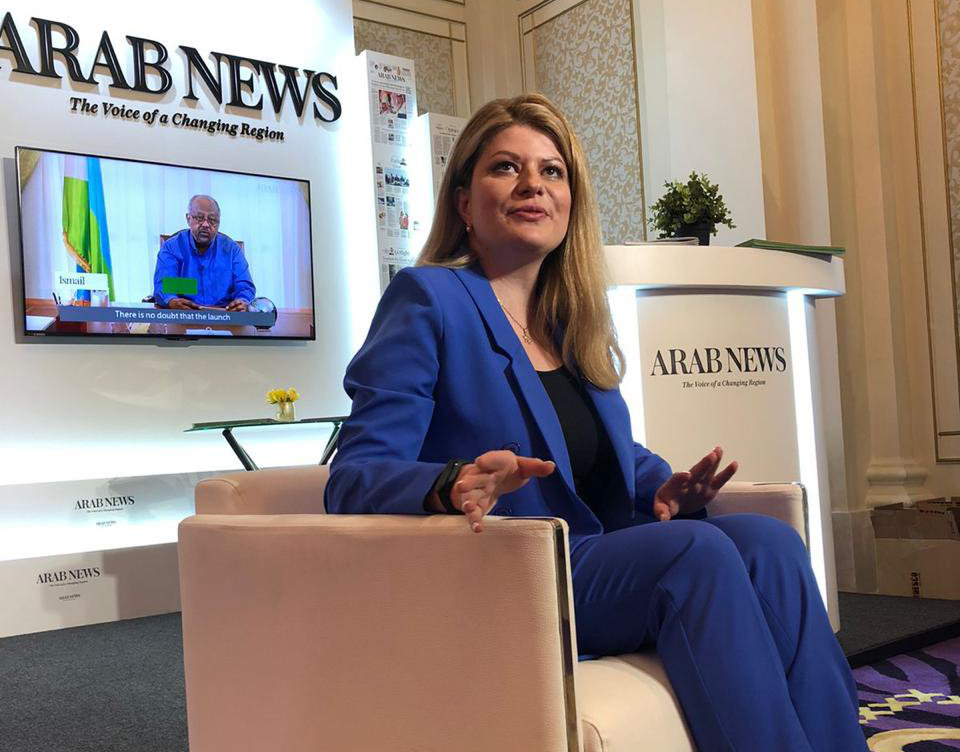
Arizh Mukhammed. (AN photo)
“It is not easy to cover war, because like any human being, you feel fear and I feel fear,” said Mukhammed, a reporter for Sky News who, together with Christiane Baissary, a senior news anchor for the Al-Hadath news channel, participated in a session entitled “Story tellers from the war front.”
Acknowledging that “fear will be there in the minds of reporters as they cover from the front lines,” Mukhammed said: “Your courage must have limits. When you are going to cover war, you have your fears, but they must be put under control.”
Following the panel discussion, she said she could not ignore human suffering and agony in her own war reporting. “Women war journalists find a deeper dimension in human suffering”. She added that men might surround themselves with the impression that they are “strong and fearless, but women actually are much more patient and are strong enough.”
For her part, Baissary said there is a common misconception that women are not suited for war coverage as some think women are emotional and more sensitive than men. “A soldier once told me that women should not be in a war zone. He was trying to convince me that I should not stay to cover the war,” she said.
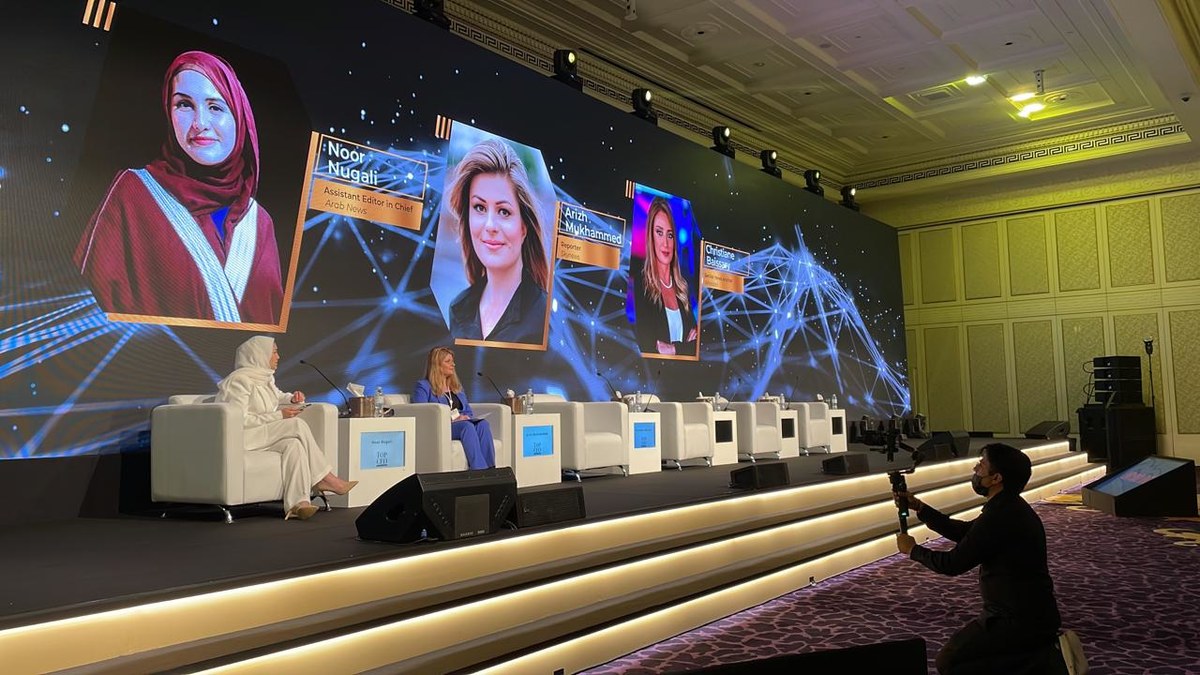
Al-Hadath senior news anchor Christiane Baissary (right) and Arizh Mukhammed of SkyNews (center) participate in panel discussions moderated by Noor Nugali, Arab News assistant editor-in-chief. (AN photo)
“This mentality is not just in the Middle East but everywhere,” she said, adding that things have now changed and women are gaining more opportunities to cover conflict zones.
The moderator of the discussion, Noor Nugali, Arab News assistant editor-in-chief, praised the role of women journalists deployed to war zones, citing the career of Al Jazeera correspondent Shireen Abu Akleh, who was killed while on assignment for the channel on May 11 in the West Bank city of Jenin.
“I think it was really important for us to highlight female war correspondents and women correspondents because what they are doing is just out of the ordinary,” Nugali said in remarks after the session. “Usually when people think of correspondents, the first thing that comes to their minds (is) women are too soft, women are incapable of handling such situations. But the reality proves the resilience, strength of women and capability of female correspondents.”
It’s fake news
We are overwhelmed with incidents of fake news in our daily lives. They range from rumors on social media to footage of incidents taken out of context.
“It is imperative to distinguish that fake news wasn’t invented with the rise of social media,” said Faisal Abbas, Arab News editor-in-chief, during a panel discussion on the subject at Tuesday’s Top CEO Conference at the same venue.

“There is no end to fake news but we must continue to battle it,” Arab News editor-in-chief Faisal J. Abas said during a panel discussion at the Top CEO Forum in Dubai on May 17. (AN photo)
“Fake news started with the beginning of humanity,” he said, alluding to the manipulation of Adam and Eve by Satan, who tricked them into eating the forbidden fruit.
The panelists discussed attempts to define fake news and identify those responsible for preventing its spread throughout the world, and especially the Arab region, known for its high social media engagement.
Hussein Freijeh, Snap Inc MENA’s general manager, said authorities’ efforts to regulate social platforms “doesn’t take away the responsibility of the tech platforms” in tackling the problem of fake news.
Fellow panelist Khaled Abdulla Janahi, chairman of Vision 3, said even the non-inclusion of a small fraction of the facts during narration amounts to dissemination of fake news.
“People sometimes are frustrated, so they look for a way to express their anger. But it is important for people to express their perspectives,” he said.
Noting that content that includes or reflects anger, hate and racism brings traffic, Abbas said: “Nobody is against freedom. We are against chaos.”
The keynote speech at the AWF was delivered by Cecilie Fjellhøy and Pernilla Sjöholm, stars of the recent hit Netflix documentary film “The Tinder Swindler.”
They spoke about their journeys from being victims of romance scam to an inspiration for women around the world. Instead of hiding in oblivion, the women have gained the status of global inspiration against emotional fraud.






